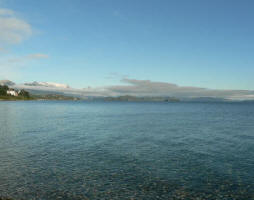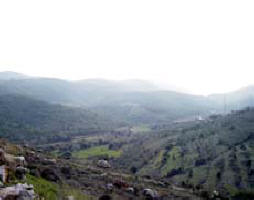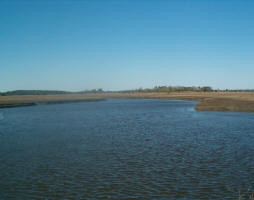 The right to water officially recognized in the constitution of post-revolutionary Tunisia
The right to water officially recognized in the constitution of post-revolutionary Tunisia
The constitution of Morocco and now that of Tunisia (art. 44) contain a reference to the right to water.
On January 27th, 2014, during a solemn ceremony at the Palace of Bardo, headquarters of the National Constituent Assembly, the new tunisian constitution was ratified by the three Presidents (President of the Republic, President of the assembly and the Head of government). A constitution considered as the most progressive of the Arab world.
Having swept away a certain January 14th, 2011 the dictatorship of Ben Ali, the Tunisians elected on October 23rd of the same year a constituent assembly to produce the constitution of their second republic, a constitution which aimed to be democratic and in accordance with the core values of the « jasmine revolution »: freedom, dignity and social justice.
On Sunday, January 26th, 2014, the constituents approved in last reading the new tunisian constitution and recognized the right to water as a part of human rights included in its chapter II, dedicated to rights and freedoms. The mentioned article 44 stipulates that: " The right to water is guaranteed. The conservation of the water and the rationalisation of its use is a duty of the State and the society ».
On January 7th, during the vote article by article, this wording had already aroused the approval of the majority of the representatives, with 167 votes for, 1 against and 3 abstentions. January 26th, late in the evening, tunisian representatives voted on the text of the constitution in its entirety with 200 votes out of a total of 216 representatives present.
The right to water is thus recognized in an explicit way and without ambiguity and the accent is also put on the responsibility of the State and the different components of the society for the conservation of the water resources and their good governance. This is understandable for a country as Tunisia situated in a zone of water scarcity with a mobilization rate of the available resources close to 90 %.
It should be pointed out that the Tunisian civil society had played a primorial role for the introduction of this right within the project of constitution. Indeed the initial text revealed in June, 2011 did not mention this right. This omission could be explained by the fact that the debates within the assembly were focused on personal freedoms, civil and political rights, for a long time compromised by the former regime. A praiseworthy effort had been carried out by a handful of experts of the water sector to convince the constituents of the necessity of introducing this right into a constitution which aimed to be revolutionary. The cause was finally understood and the following versions of the project of constitution had all.
The only question that remains, is the non-recognition of the right to sanitation in the constitutional text in spite of the attempt of certain representatives to introduce just before the session of vote article by article, an amendment including the right to sanitation, but regrettably their proposal had not been held(retained).
With this constitutional consecration, Tunisia joins the club of the African States which had introduced the right to water into their constitutions following the example of South Africa, Uganda, Ethiopia or still Zambia. At the same time, Tunisia is now with Egypt the only two Arab States which recognized this right for such a normative scale, indeed, the new Egyptian constitution adopted by referendum on January 14th and 15th, 2014 mentioned this right in its article 79.
This constitutional recognition of the right to water in Tunisia represents an important step forward towards its full realization in the country, it fills a gap at the level of the internal legislation which did not consider useful to recognize it, but it is especially going to incite the authorities in charge of the sector of drinking water to double effort in order to give the example regarding realization of this right onto the ground. This task does not seem inaccessible for a country as Tunisia, where the level of access to drinking water is close to 90 % and the price of the cubic meter remain accessible for the users connected to the public network, the consumption of which is situated within the limits of 20 m3 / quarter.
| Contact information |
Moez Allaoui, Directeur des affaires juridiques à la SO.N.E.D.E Lauréat de la faculté de droit de l'Université René Descartes Paris 5 Spécialiste en légistique ; Zoubeida Bargaoui ; Henri Smets
(email: m.allaoui@topnet.tn ; zoubeida.bargaoui@laposte.net ; henri@smets.com) |
|---|---|
| News type | Inbrief |
| File link | n/a |
| File link local |
|
| Source of information | Moez Allaoui, Directeur des affaires juridiques à la SO.N.E.D.E Lauréat de la faculté de droit de l'Université René Descartes Paris 5 Spécialiste en légistique |
| Keyword(s) | right to water |
| Subject(s) | DRINKING WATER , DRINKING WATER AND SANITATION : COMMON PROCESSES OF PURIFICATION AND TREATMENT , RIGHT |
| Relation | http://www.semide.net/topics/WaterRight |
| Geographical coverage | Tunisia, Morocco |
| News date | 30/01/2014 |
| Working language(s) | ENGLISH , FRENCH |
 you are not logged in
you are not logged in





